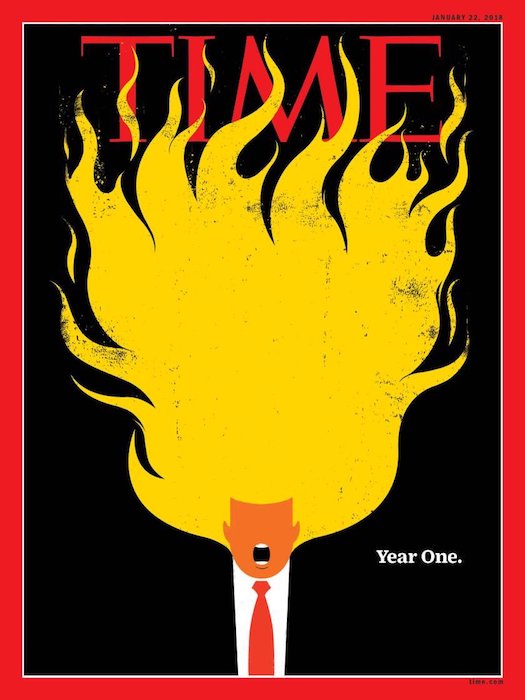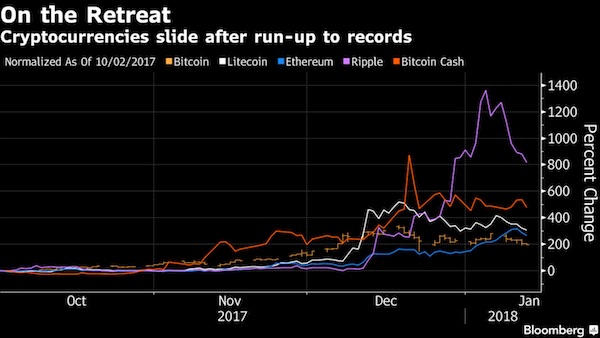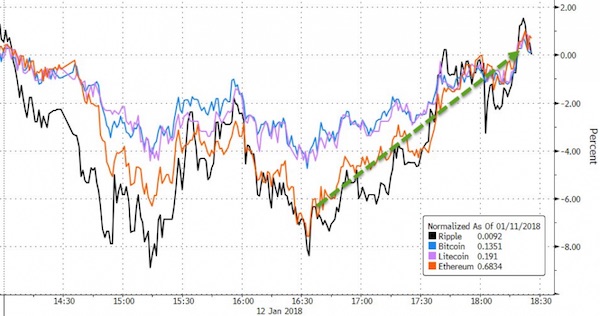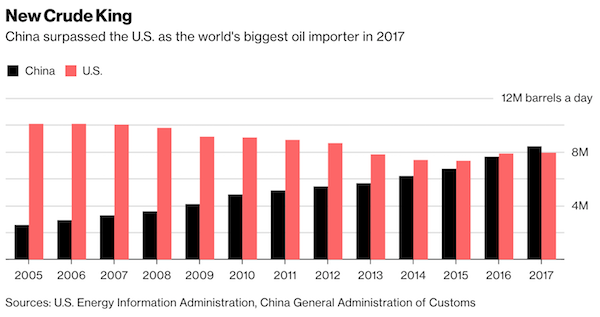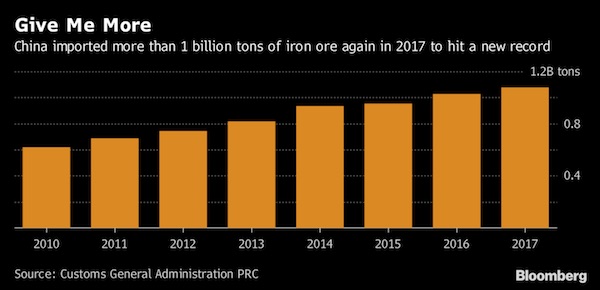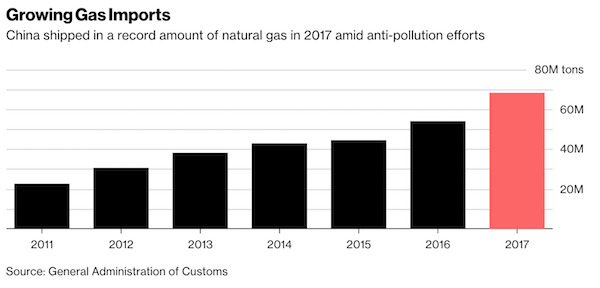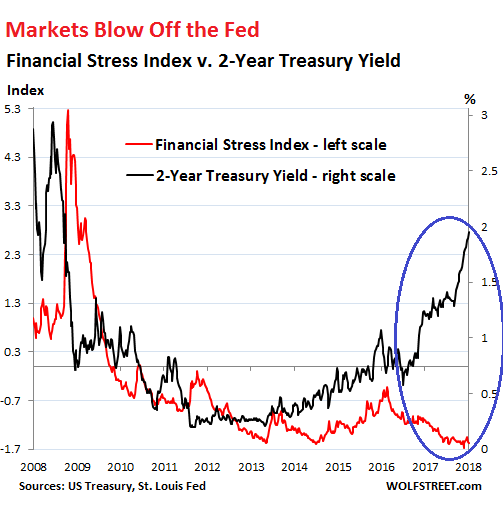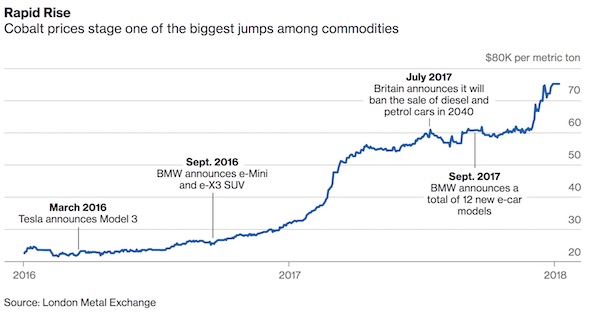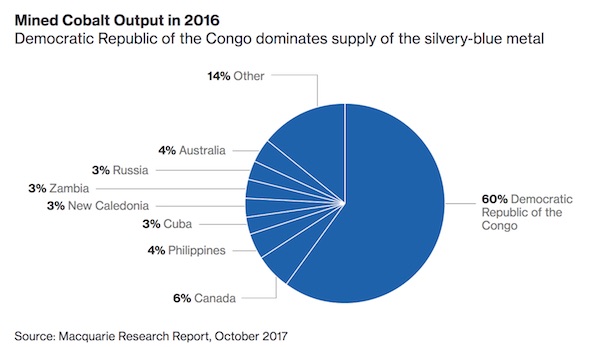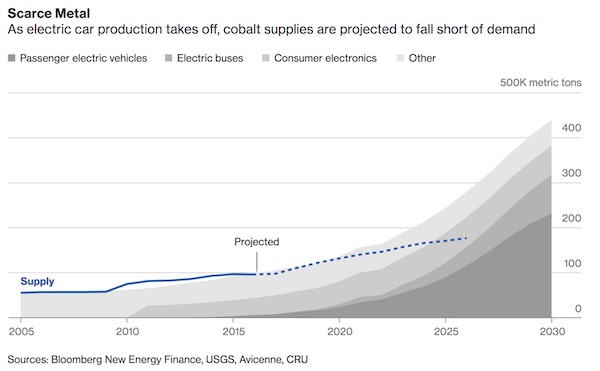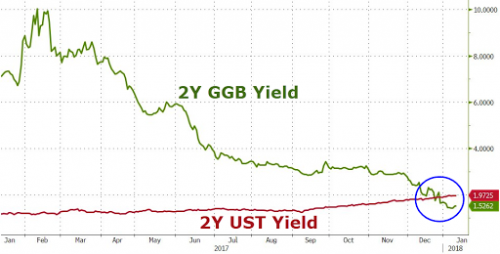
Rembrandt van Rijn Landscape With the Rest on the Flight into Egypt 1647

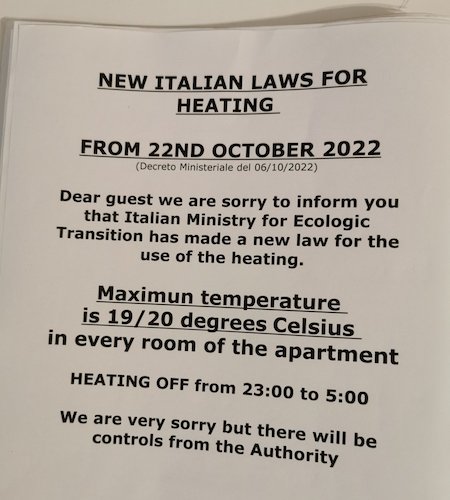

I am not a robot: what that means
This is what ticking “I am not a robot” means. You are authorizing them to snoop around your browsing history.
Source: https://t.co/cgfnH16JZr pic.twitter.com/XcnsezlaDP— Wittgenstein (@backtolife_2023) October 22, 2022



Keri Lake
https://twitter.com/i/status/1583511672995528705



Biden
This is not your father's Republican Party. These Republicans are way scarier than the others. Not a joke. My word as a Biden. pic.twitter.com/vwsMwplDUm
— Maze (@mazemoore) October 22, 2022

Assange
Julian showed from an early age the kind of leader he is; an idealist, an unrelenting visionary dedicated to fighting corruption and helping shape the world into one that lifts up the many.#JournalismIsNotACrime#FreeJulianAssange pic.twitter.com/cJ7zXnMWVg
— Don't Extradite Assange – #FreeAssange (@DEAcampaign) October 21, 2022


America’s finest reduced to a propaganda stunt. And sitting ducks. On national TV. So Americans will think: now the Russkies will be afraid!
• Elite US Unit Ready To Fight In Ukraine If Conflict ‘Escalates’ – CBS (RT)
The US Army 101st Airborne Division would not hesitate to enter Ukraine should a conflict break out between Russia and NATO, CBS News reported on Friday citing the unit’s military commanders. The elite division is currently conducting war games in Romania, close to the NATO country’s border with Ukraine. The unit’s commanders told CBS that they would be prepared to cross into Ukraine if the fighting escalates – without elaborating what that would entail – or if NATO were to come under attack. They highlighted that their current deployment in Europe, the first since WWII, is “to defend NATO territory.” “We’re ready to defend every inch of NATO soil”, Deputy Commander Brigadier General John Lubas told the news network.
In Romania, the 101st Airborne Division is holding joint live-fire ground and air assault exercises. According to Colonel Edwin Matthaidess, Commander of the 2nd Brigade Combat Team, his division is the closest US unit to the fighting in Ukraine. He noted that the US troops, have been “closely watching” the Russian military while “building objectives to practice against” and organizing the drills to “replicate exactly what’s going on” in Ukraine. “It keeps us on our toes,” he added. In total, about 4,700 American soldiers from the 101st Airborne’s base in Fort Campbell, Kentucky, have been sent to Europe. NATO has repeatedly stated that it is not a party to the conflict and will not send its troops into Ukraine.
In late June, Secretary General Jens Stoltenberg announced that the US-led bloc would significantly increase the number of its forces on high alert from 40,000 to over 300,000. Since the start of Russia’s military offensive on February 24, Ukraine has received substantial military aid from NATO countries, with billions of dollars’ worth of weaponry pouring into the country – which Moscow has repeatedly criticized. The 101st Airborne Division, also known as the “Screaming Eagles,” has a distinguished military history. It took part in the airborne operations during the D-Day landings in Normandy in 1944 and in the Battle of the Bulge, where it fought in a complete encirclement. The unit was also involved in the Vietnam, Iraq and Afghanistan wars.
⚡️US troops sent to Ukraine borders pic.twitter.com/FqyjuY6Xot
— Russian Market (@runews) October 22, 2022
CBS gets an exclusive sneak peak: "The US Army's 101st Airborne is practicing for war with Russia just miles from Ukraine's border"
"It's not just about defending NATO territory," correspondent @charliecbs reports. "They're fully prepared to cross over into Ukrainian territory" pic.twitter.com/XE2OfHZV4o
— Michael Tracey (@mtracey) October 22, 2022

“.. a multinational force led by the US and not as a NATO force..”
“Petraeus commanded US forces in Afghanistan from 2010 to 2011, presiding over America’s highest death tolls during the 20-year war, and increased civilian casualties.”
• US-Led Force Might Intervene In Ukraine Conflict – Petraeus (RT)
The US and its allies might directly intervene in the ongoing conflict between Moscow and Kiev, even when there is no threat to any NATO member states, retired US Army general David Petraeus told France’s L’Express weekly on Saturday. Washington might form a new coalition of the willing in such a scenario and use it instead of NATO, Petraeus, who also briefly served as the CIA director, believes. Russia could take some actions in Ukraine that would be “so shocking and so horrific” that it would prompt a response from the US and other nations, he said, adding that they “might react in one way or another, but as a multinational force led by the US and not as a NATO force.” The military alliance would still likely be bound by its treaty and would only join the conflict if Article 5 is invoked, i.e. if one of its members is attacked, the general believes.
Petraeus also said that Moscow is not interested in escalating the conflict and turning it into a global war. A wider conflict is “the last thing” Russian President Vladimir Putin needs right now, he added. Earlier in October, Petraeus claimed that the US could wipe out all Russian forces in Ukraine, alongside with the Russian Black Sea fleet, if Moscow uses nuclear arms in Ukraine. On Saturday, he doubled down on these words by saying that Washington’s response to such a move on Russia’s part would involve “more than diplomatic … economic and legal actions.” At the same time, Petraeus said that his earlier words had described “just one” of “many options” America has in store in case Russia resorts to the use of nuclear arms, which he called an “extremely bad decision.”
The general also said that he still thinks there is nothing Russia could do to change the situation on the frontlines, which, according to Petraeus, is unfavorable to Moscow. Petraeus commanded US forces in Afghanistan from 2010 to 2011, presiding over America’s highest death tolls during the 20-year war, and increased civilian casualties. The general helped persuade then-President Barack Obama to deploy an additional 30,000 US troops to the country, but his counterinsurgency plan, which hinged on “securing and serving” the local population, flopped. He then became CIA director in 2011, only to resign the following year after having an extramarital affair with the woman who was writing his biography.
Judge Nap and Scott Ritter
Former US Marine Corps intelligence officer Scott Ritter praises Putin as a patriot and says he is not anti-West, the West is anti-Russia. pic.twitter.com/6OYUQPha25
— Hassan Mafi (@thatdayin1992) October 22, 2022

“..we need immediate peace instead of a longer war. Peace requires an immediate ceasefire and dialogue.”
• Hungarian Foreign Ministry Criticizes ‘Pro-war’ EU (RT)
The Hungarian Foreign Ministry has rejected EU calls for Russia to be defeated in Ukraine, saying the bloc needed peace, not a prolonged conflict. EU Commissioner for Home Affairs Ylva Johansson made several statements on the hostilities this week, stressing the bloc’s “determination, resolve and unity to stand by Ukraine as long as it takes.”She also insisted that “to end this crisis, first, Putin must lose.” Responding on Friday, Tamas Menczer, State Secretary at Hungary’s Foreign Ministry, accused Johansson of making “a very dangerous statement because it links the end of a crisis with a military event, about which we don’t know when will it happen or if it happens at all.” “This pro-war stance of Brussels extends the conflict and suffering. This is extremely dangerous and unacceptable,” he insisted.
Menczer reiterated the position of the Hungarian government, which is that “we need immediate peace instead of a longer war. Peace requires an immediate ceasefire and dialogue.” Hungary has remained relatively neutral since the outbreak of fighting in Ukraine in late February. It has refused to send arms to Kiev unlike many fellow EU members and consistently criticized the sanctions imposed by Brussels on Moscow. Budapest, which is heavily dependent on Russian fuel, was also able to negotiate an exemption for itself from the bloc-wide ban on Russian oil. Moscow, which has repeatedly invited Kiev to come to the negotiating table, has blamed the Ukrainian side for undermining any potential for a peaceful settlement of the conflict.
Earlier this month, Ukrainian President Vladimir Zelensky signed a declaration that officially made it “impossible” to hold any negotiations with his Russian counterpart Vladimir Putin. The move followed the inclusion of the Kherson and Zaporozhye Regions, and the People’s Republics of Donetsk and Lugansk, into Russia as result of referendums in those territories. Kiev and its Western backers have labeled September’s votes a “sham” and continue to view the areas as parts of Ukraine.
More for oligarchs
https://twitter.com/i/status/1583771357544083457

‘to be so far from God and yet so close to the United States.’
• Ukraine War Evolves: Slouching Toward Armageddon (Falk)
[..] even if it can be argued that Russia/Putin have launched a war that is unlawful, immoral, and unjustified, the wider geopolitical context remains crucial if peace is to be restored and catastrophe avoided. For one thing, the Russian attack may be all of those things alleged, and yet form part of a geopolitical pattern of established behavior that the U.S. has itself confirmed in a series of wars starting with the Vietnam War, and notably more recently with the Kosovo War, Afghanistan War, and the Iraq War. None of these wars were legal, moral, and justifiable, although each enjoyed a geopolitical rationale that made them seem desirable to U.S. foreign policy elites and its closest alliance partners.
Of course, two wrongs do not make a right, but in a world where geopolitical actors enjoy a license to pursue vital strategic interests within traditional spheres of influence, it is not objectively defensible to self-righteously condemn Russia without taking account of what the U.S. has been doing around the world for several decades. Antony Blinken may tell the media that spheres of influence became a thing of the past after World War II, but he must have been asleep for decades not to notice that the Yalta Agreement on the future of Europe reached in 1945 by the Soviet Union, United States, and the United Kingdom was premised on precisely the explicit affirmation of such spheres, which in retrospect, however distasteful in application, deserve some credit for keeping the Cold War from becoming World War III.
Such compromised sovereignty of these borderland countries is descriptive of the prerogatives claimed by so-called Great Powers throughout the history of international relations, not least by the United States through the Monroe Doctrine and its extensions. In this sense, Ukraine finds itself in the long unenviable position of Mexico, and indeed all of Latin America. Many years ago the famous Mexican cultural figure, Octavio Paz, proclaimed the tragedy of his country ‘to be so far from God and yet so close to the United States.’

“Austrian Chancellor Karl Nehammer pointed out that any decision to transfer Russian assets to help Ukraine would have to be made in court..”
• Ukraine Confiscates Russian Cargo Ships (RT)
Kiev has handed over nine vessels belonging to Russia to a Ukrainian company, the country’s authorities announced on Saturday. “The income received from managing the vessels will go to the state budget of Ukraine. The total cost of the ships is over UAH 532 million (nearly $14.5 million),” the Prosecutor General’s Office said in a message on its Telegram channel. The ships entered Ukrainian ports in late 2021 and early 2022 and, according to the agency, were transporting cargo. They were then “arrested” and transferred to ARMA, a government agency for the search and management of assets.
In August, Ukrainian President Vladimir Zelensky announced that Kiev had confiscated $765 million worth of Russian assets on Ukrainian territory, and was going to seize more assets belonging to the Russian state, and to use the proceeds for Ukraine’s defense and reconstruction. On Friday, the EU said it would look into ways of using the €300 billion ($292 billion) worth of Russian assets it has frozen as part of sanctions against Moscow, to finance Ukraine. After a summit in Brussels, Austrian Chancellor Karl Nehammer pointed out that any decision to transfer Russian assets to help Ukraine would have to be made in court, as Europe was committed to the rule of law. Moscow has repeatedly condemned the seizure of its assets by Western nations and has described it as theft.

Of course, the west says it’s Russia that threatens the dam.
• Russia Urges UN To Prevent Ukraine’s ‘Terrible Provocation’ (RT)
Russia has formally asked the United Nations Security Council to prevent Ukraine from destroying the Kakhovskaya hydroelectric dam in Kherson Region. Such a disaster could result in the deaths of thousands of civilians, Moscow’s ambassador to the UN warned on Friday. Speaking at a Security Council briefing, Vassily Nebenzia noted that as the West chooses to ignore “any criminal acts” committed by Ukraine, the country has been “consistently conducting strikes on civilian infrastructure in its former territories”, including the town of Novaya Kakhovka in Kherson Region, which was recently incorporated into Russia. According to the envoy, most of the missiles are being launched from US-made High Mobility Artillery Rocket Systems (HIMARS).
“Ukrainian forces are aiming at the Kakhovskaya dam in order to break it, causing the water level to rise and the adjacent areas to flood,” the diplomat said. Should this happen, Nebenzia warned, “thousands of civilians may be killed, and thousands of homes damaged.” The envoy said Russia has distributed a letter to Security Council members, calling on the UN leadership to prevent “this terrible provocation.” The Ukrainian military frequently shells settlements and civilian infrastructure in the Kherson Region. Aside from the Kakhovskaya plant, Kiev has been targeting the Antonovsky Bridge and a pontoon crossing over the Dnepr River in the city of Kherson, in a bid to disrupt Russian logistics in the area.
On Wednesday, Russian President Vladimir Putin imposed martial law in Kherson Region, as well as three other former Ukrainian territories, amid reports that Kiev’s forces were preparing a large-scale offensive against the area’s capital city. A day earlier, local authorities announced the relocation of civilians from the province. Kiev’s forces have also repeatedly targeted Zaporozhye nuclear power plant, which is located in the neighboring region, with Russian authorities warning that the attacks could trigger a disaster that would eclipse the Chernobyl incident.

Kolomoisky should withdraw his puppet.
• Zelensky Calls On ‘World’ To Strike Russia (RT)
The world should make it clear to Russia that it would have to face immediate military response if it decides to use nuclear arms against Kiev, Ukrainian President Vladimir Zelensky told CBC and CTV broadcasters in an interview this week. The Ukrainian leader accused Russia of using “terrorist” blackmail tactics and said that Moscow only understands the language of force. Zelensky accused Moscow of repeatedly threatening to strike “decision-making centers” in Ukraine, including with nuclear arms and said that the world should respond if such a strike does take place. “It does not matter if Ukraine is a NATO member or a non-NATO nation,” he said, adding that no one should be allowed to “blackmail [other nations] like a terrorist.”
According to the Ukrainian president, the world should tell the Russians: “If you strike Bankova Street [the Ukrainian President’s Office], there will be a strike at where you are.” If Moscow does strike Kiev, there should be “a strike at the decision-making centers” in Russia the next “second,” regardless of the results of the Russian attack, he added. Such a stance would be, in turn, not a blackmail but a kind of self-defense that would supposedly prevent those issuing a threat from following through on their plans, Zelensky argued. “One can talk about humanism for a long time,” the Ukrainian president told journalists, adding that his nation lives in a situation, where it has a “neighbor that does not understand anything but force.”
The Ukrainian president also squarely blamed all Russians for what happens in Ukraine. “The society of the Russian Federation must know that they attack our [Ukrainian] society,” he said, adding that the Russians “support a terrorist authority.” If the Russians “do not exert pressure” on President Vladimir Putin, “the world will isolate itself from you,” Zelensky warned, adding that nobody would talk to Russia since it only speaks “the language of threats.” The Ukrainian president also said that the world must itself decide who to talk to in Russia since “they are terrorists now. All of them.”It is not the first time the Ukrainian leader makes such appeals. Earlier, he already called on NATO to carry out preventive strikes on Russia to deter the use of nuclear weapons.
At that time, his words sparked an angry reaction from Moscow that accused Zelensky of trying to spark a third world war. Zelensky later walked back his remarks, claiming that he actually meant “preventative kicks” and blaming the ‘misunderstanding’ on the translation. The Ukrainian president then walked back his statement, claiming it was mistranslated and that he really meant to say preemptive sanctions, not “preemptive strikes.” Back in September, Putin said that Russia would defend its territory using all means available and would do “everything to ensure the security of its people.” At the same time, he also said that Moscow was ready for talks with Kiev and called on Ukraine to “to cease all hostilities” and return to the negotiating table.

Not a bombshell.
• Net Zero Bombshell: The World Does Not Have Enough Lithium and Cobalt (DS)
Influential elites are either in denial about the horrifying costs and consequences of Net Zero – witness last Wednesday’s substantial vote against fracking British gas in the House of Commons – or busy scooping up the almost unlimited amounts of money currently on offer for promoting pseudoscience climate scares and investing in impracticable green technologies. Until the lights start to go out and heating fails, they are unlikely to pay much attention to a recent 1,000 page alternative energy investigation undertaken for a Finnish Government agency by Associate Professor Simon Michaux. Referring to the U.K.’s 2050 Net Zero target, Michaux states there is “simply not enough time, nor resources to do this by the current target”.
To cite just one example of how un-costed Net Zero is, Michaux notes that “in theory” there are enough global reserves of nickel and lithium if they are exclusively used to produce batteries for electric vehicles. But there is not enough cobalt, and more will need to be discovered. It gets much worse. All the new batteries have a useful working life of only 8-10 years, so replacements will need to be regularly produced. “This is unlikely to be practical, which suggests the whole EV battery solution may need to be re-thought and a new solution is developed that is not so mineral intensive,” he says. All of these problems occur in finding a mass of lithium for ion batteries weighting 286.6 million tonnes. But a “power buffer” of another 2.5 billion tonnes of batteries is also required to provide a four-week back-up for intermittent wind and solar electricity power.
Of course, this is simply not available from global mineral reserves, but, states Michaux, it is not clear how the buffer could be delivered with an alternative system. Michaux sounds a clear warning message. Current expectations are that global industrial businesses will replace a complex industrial energy ecosystem that took more than a century to build. It was built with the support of the highest calorifically dense source of energy the world has ever known (oil), in cheap abundant quantities, with easily available credit and seemingly unlimited mineral resources. The replacement, he notes, needs to be done when there is comparatively very expensive energy, a fragile finance system saturated in debt and not enough minerals.
Most challenging of all, it has to be done within a few decades. Based on his copious calculations, the author is of the opinion that it will not go fully “as planned”. Last Sunday, Sir David Attenborough concluded six episodes of pseudoscientific green agitprop Frozen Planet II by demanding that the world embrace Net Zero, “no matter how challenging it may be”. Net Zero is a political command-and-control project, the full horror of which is yet to be inflicted on the general population. Michaux is quite clear what it entails: “What may be required, therefore, is a significant reduction of societal demand for all resources, of all kinds. This implies a very different social contract and a radically different system of governance to what is in place today.”

Make that the entire German car industry. Who’s buying cars?
• Electric Cars In Germany May Fall Victim To Energy Crisis – Spiegel (RT)
The current energy crisis in Europe could put the brakes on electric mobility in Germany and make e-vehicles unattractive to potential customers, Der Spiegel reported on Friday. With electricity getting ever more expensive, charging an e-vehicle is sometimes pricier than filling up a petrol or diesel vehicle, the newspaper writes. The combustion engine is more than €30 cheaper per month on average with a mileage of 15,000 kilometers, the publications writes. By the end of next year, an e-car should “clearly be at a disadvantage,” Der Spiegel quotes Ferdinand Dudenhoeffer from the Center for Automotive Research as saying.
The state bonuses for buying electric vehicles were also reduced by 25%. With an almost a year-long wait for an ordered electric car to arrive, the buyer will get a smaller bonus than they were expecting, the outlet writes, adding that there’s no longer any state subsidy for hybrid cars. In the current climate, consumers may have little desire to buy a new car. The situation was described as a “toxic mixture of energy crisis and inflation” by Sabine Jaskula from ZF, Germany’s second largest car systems supplier. Electric car production will collapse in Europe next year, she predicts, as only 11 million cars could roll off the assembly line across the industry instead of the planned 18 million.
Another ZF representative described the EU plans to stop selling petrol and diesel cars by 2035 as “illusory.” There’s also a shortage of public charging stations across Germany, according to Der Spiegel. In some metropolitan areas, a single station has to be shared between as many as 60 vehicles, and a large-scale station refurbishment is needed to provide enough charging spaces for everyone. According to veteran battery car dealer Wolf Warncke, “There is a risk that prospective buyers will turn their backs on e-mobility.”

Brook Jackson. “Staff who conducted quality control checks were overwhelmed by the volume of problems they were finding.”
• A Judge is About to Rule on Pfizergate Case (BN)
The last shred of hope for holding Big Pharma accountable for fraud now rests on a lawsuit against vaccine manufacturer Pfizer. In an update provided to Becker News, a judge is soon expected to issue his ruling on whether or not the ‘Pfizergate’ fraud case proceeds to trial. “The judge is deciding, as I type, whether we go to discovery or the case is dismissed,” Pfizer whistleblower Brook Jackson tells Becker News. After the CDC this week voted to add the Covid shots to its Childhood Vaccines Schedule, under the PREP Act, it has effectively been granted legal immunity to lawsuits. There is no legal immunity if Pfizer committed fraud, however. In September, Pfizer whistleblower Brook Jackson came forward with her explosive report about the company’s alleged malfeasance, citing ‘falsified data’ and manipulated clinical trials.
In January, she filed a lawsuit against Pfizer for committing fraud against the American people. In February, the judge ruled that the lawsuit, being led by attorney Robert Barnes, can proceed to pre-trial discovery phase. It is now on the verge of potentially going to trial. Brook Jackson is a former clinical trial auditor who was fired after raising her concerns. She first came forward with inside information and documented evidence about Pfizer’s operations in a BMJ investigation conducted by Paul Thacker. The report raises serious red flags that the FDA and Pfizer engaged in massive fraud to justify vaccine mandates. “A regional director who was employed at the research organisation Ventavia Research Group has told The BMJ that the company falsified data, unblinded patients, employed inadequately trained vaccinators, and was slow to follow up on adverse events reported in Pfizer’s pivotal phase III trial,” the BMJ reported. “Staff who conducted quality control checks were overwhelmed by the volume of problems they were finding.
After repeatedly notifying Ventavia of these problems, the regional director, Brook Jackson, emailed a complaint to the US Food and Drug Administration (FDA). Ventavia fired her later the same day. Jackson has provided The BMJ with dozens of internal company documents, photos, audio recordings, and emails.” “Jackson has told The BMJ that, during the two weeks she was employed at Ventavia in September 2020, she repeatedly informed her superiors of poor laboratory management, patient safety concerns, and data integrity issues,” the report added. “Jackson was a trained clinical trial auditor who previously held a director of operations position and came to Ventavia with more than 15 years’ experience in clinical research coordination and management.” The U.S. government has moved to dismiss the case, which cites the False Claims Act.
Who is Brook Jackson?
The whistleblower story that should matter to everyone… pic.twitter.com/tYR9Vk9tgu— Kate (@KateTalksTruth) October 10, 2022

His entire calendar, minus redactions.
• Fauci’s Calendar: What Was He Doing in the Months Before the Pandemic? (CHD)
On Tuesday, Jan. 14, 2020, at 9 a.m., Dr. Anthony Fauci joined staff at the National Security Council (NSC) — the President’s national security and foreign policy advisory shop — for a meeting in the Eisenhower Executive Office Building about the novel coronavirus. Fauci would continue to have meetings in classified settings throughout the month. Fauci’s calendar entries included NSC meetings, White House Situation Room meetings and meetings in other classified settings, as COVID-19 was breaking in China. (To our knowledge, the existence of these meetings before Jan. 28, 2020, was not previously disclosed.) On Friday, Jan. 24, four days after China admitted human-to-human transmission of the virus, Fauci started attending a small group COVID-19 discussion that first took place in “Anthony’s Office” in a building next to the White House.
Anthony, in this case, appears to be an NSC employee and an expert in biodefense and China. Flashing back to December 2019, when patients in Wuhan were showing up at hospitals with unidentified pneumonia cases, Fauci attended the Bill and Melinda Gates Foundation — National Institutes of Health (NIH) dinner and workshops on Dec. 19 and 20 — the sixth annual event for NIH staff and Gates Foundation executives. On the morning of Dec. 19, billionaire Bill Gates tweeted out his own hopes for the coming year and his now prescient prediction: “one of the best buys in global health: vaccines.” Today, we only know about these meetings, because our organization at OpenTheBooks.com, in partnership with the public-interest law firm Judicial Watch, sued the NIH in federal court.
NIH had refused to even acknowledge our Freedom of Information Act (FOIA) request. So, for the first time, here is our exclusive release of Fauci’s official calendar. For a government bureaucrat, this sure was one tightly held calendar. The refusal by NIH to follow open records law was a strategy to delay transparency: NIH forced us into expensive taxpayer-paid litigation to slow-walk 156 pages of semi-redacted calendar production. Fauci’s calendar has 933 events during this five-month period — including 224 media interviews and 84 redacted events (only significant redactions that prevented analysis and understanding were counted, for example, phone number redactions were not included). It’s a document that NIH and Fauci didn’t want you to see … Why? What did Fauci know? And when did he know it?

“..Tony made written response to questions to which he was required to provide verified answers under penalty of perjury but failed to sign them. They were instead signed by an underling.”
• Fauci (et al) Fraud Finale? (El Gato)
The lawsuit Missouri et al vs about the whole of US public health is progressing in its exploration of the explicit and deliberate role of the us government and many of its agents including Fauci, Murthy, Biden, and Jankowicz (amidst a cast of dozens and several agencies) in the systematic shaping, suppression, and censorship of information regarding covid. As those quaint few who still believe in things like “the 1st amendment” may recall, this is a bit of a constitutional no no. The government is not allowed to dominate the press. This is a matter of sound and settled law. 2. A private entity violates the First Amendment “if the government coerces or induces it to take action the government itself would not be permitted to do, such as censor expression of a lawful viewpoint.” Biden v. Knight First Amendment Institute at Columbia Univ., 141 S. Ct. 1220, 1226 (2021) (Thomas, J., concurring). “The government cannot accomplish through threats of adverse government action what the Constitution prohibits it from doing directly.” Id.
These practice date back to well before covid and appear to have been a widespread program by which one political party stifled the views of the other, enhancing left leaning messaging and suppressing the right. It’s been part and parcel of a behavioral package dating back to at least the beginnings of the obama administration, the politicized weaponization of the IRS, the FBI, and who knows how much media right up through such hit singles’ as “the Hunter Laptop is misinformation but the Steele Dossier is real” and “questioning the 2016 election is patriotism but questioning 2020 is insurrection.” The fun part of this is perfectly encapsulated by this quote: “Missouri AG Eric Schmitt: “No one has had the chance to look under the hood before – now we do.”
But a funny thing happened on the way to discovery: Most of the subjects of the investigation have been steadfastly refusing to testify (a crime for which Bannon just got jail). The refusals, prevarications, and slights of hand have been wild. It’s been the entire teflon tony playbook. But it looks like the courts have has just about enough of this slippery behavior. in an exemplary act of evasiveness, Tony made written response to questions to which he was required to provide verified answers under penalty of perjury but failed to sign them. They were instead signed by an underling. This astonishing action serves as its own indictment and fits neatly into a longstanding pattern of lying to Congress and to the American people and it appears that judge doughty (huge win for nominative determinism on that one) is declaring an and to the shenanigans.Folks are going to get deposed under oath, penalty of perjury, and under threat of contempt.

As well as Lockdowns, Vaccine Passports, Mask Mandates. What justification is left by now?
• EU Sets Out Commitment to “Legally Binding” Global Pandemic Treaty (DS)
The document emphatically reinforces the EU’s commitment to a new “legally binding” pandemic treaty with a “reinforced WHO at its centre” and commits over half a billion euros (equivalently, dollars and pounds) to making it happen.
“Lastly, the EU believes it is vitally important to build on the lessons learned from the COVID-19 pandemic and to strengthen the global health architecture – with a reinforced WHO at its centre. The EU is determined to be a driving force in the negotiations on a new, legally binding, international agreement on pandemic prevention, preparedness and response and on targeted amendments to strengthen the International Health Regulations 2005. These complementary processes are a priority for the EU and provide a historic opportunity to find multilateral solutions to common challenges, based on the principles of collective solidarity, equity, fairness, inclusiveness and enhanced transparency. Moreover, the new Financial Intermediary Fund (FIF) for Pandemic Prevention, Preparedness and Response, to which Team Europe has already pledged at least €588 million, will provide funding to support pandemic prevention, preparedness and response, including the implementation of the amended International Health Regulations and the new international agreement on pandemic prevention, preparedness and response.”
The document also trails a forthcoming “EU global health strategy” which “will provide the political framework with priorities, governance and tools, enabling the EU to speak with one influential voice and making the most of Team Europe’s capacity to protect and promote health globally”. This is a very disturbing document. For those of us who still hold to the evidence-based pandemic strategies of pre-2020, premised only on mitigating impacts by expanding emergency healthcare capacity and finding safe and effective treatments, and not imposing intrusive, harmful and unproven methods of trying to prevent the spread of a disease that is anyway harmless to most people, this bodes ill indeed for the current direction of travel in Europe and globally.

“The proton is a quantum mechanical object that exists as a haze of probabilities..”
• Inside the Proton, the ‘Most Complicated Thing You Could Possibly Imagine’ (QM)
More than a century after Ernest Rutherford discovered the positively charged particle at the heart of every atom, physicists are still struggling to fully understand the proton. High school physics teachers describe them as featureless balls with one unit each of positive electric charge — the perfect foils for the negatively charged electrons that buzz around them. College students learn that the ball is actually a bundle of three elementary particles called quarks. But decades of research have revealed a deeper truth, one that’s too bizarre to fully capture with words or images. “This is the most complicated thing that you could possibly imagine,” said Mike Williams, a physicist at the Massachusetts Institute of Technology. “In fact, you can’t even imagine how complicated it is.”
The proton is a quantum mechanical object that exists as a haze of probabilities until an experiment forces it to take a concrete form. And its forms differ drastically depending on how researchers set up their experiment. Connecting the particle’s many faces has been the work of generations. “We’re kind of just starting to understand this system in a complete way,” said Richard Milner, a nuclear physicist at MIT. As the pursuit continues, the proton’s secrets keep tumbling out. Most recently, a monumental data analysis published in August found that the proton contains traces of particles called charm quarks that are heavier than the proton itself.
The proton “has been humbling to humans,” Williams said. “Every time you think you kind of have a handle on it, it throws you some curveballs.” Recently, Milner, together with Rolf Ent at Jefferson Lab, MIT filmmakers Chris Boebel and Joe McMaster, and animator James LaPlante, set out to transform a set of arcane plots that compile the results of hundreds of experiments into a series of animations of the shape-shifting proton. We’ve incorporated their animations into our own attempt to unveil its secrets.





Dog dewormer
Edmond man says cheap drug for dogs cured his cancer
Source: KOCO 5 News (Youtube) pic.twitter.com/ErNhu5xQ6p— Wittgenstein (@backtolife_2023) October 21, 2022



Centripetal force
Centripetal force pic.twitter.com/R1jp99NcMx
— Science girl (@gunsnrosesgirl3) October 22, 2022



Halloween
You guys ever drive by Fed Governor Chris Waller's house? pic.twitter.com/eWlwNDrVVn
— Rudy Havenstein: Stand Tall. Shout Out. With Me. (@RudyHavenstein) October 21, 2022


Support the Automatic Earth in virustime with Paypal, Bitcoin and Patreon.







